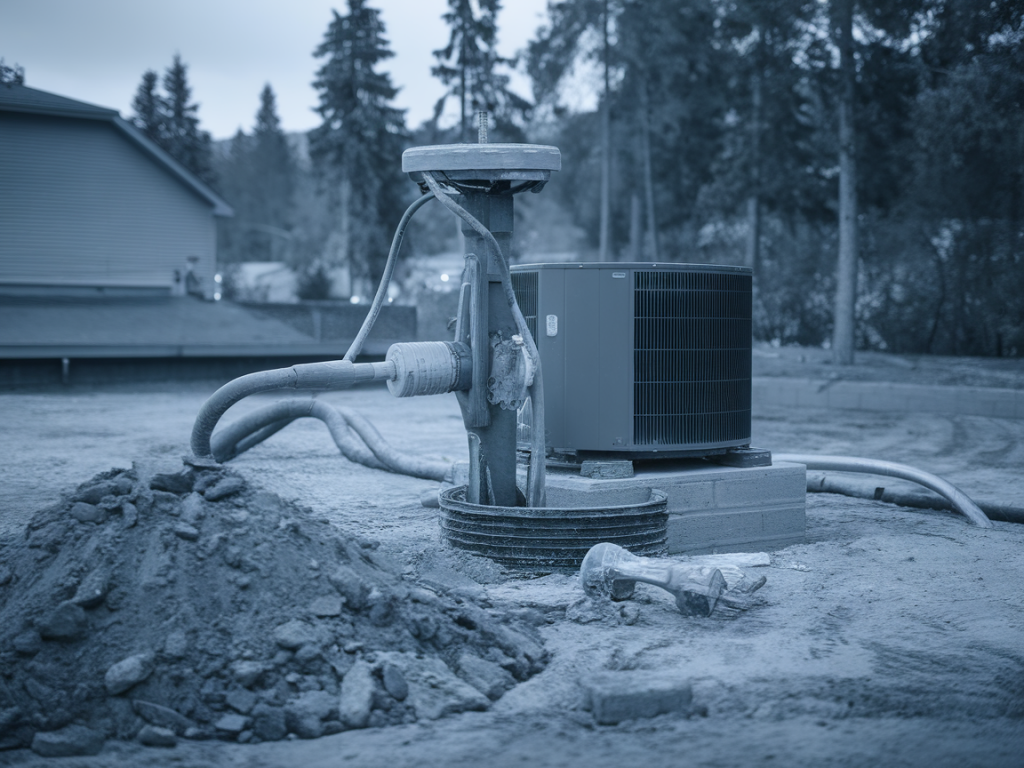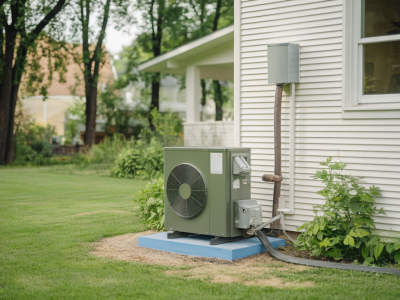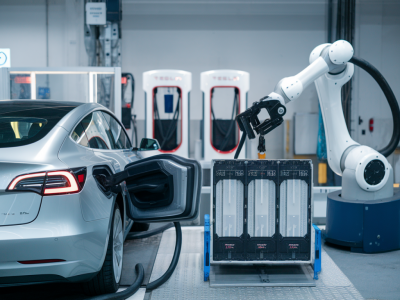
As we stand at a turning point in our collective fight against climate change, the way we heat and cool our homes is under the magnifying glass. Energy efficiency and sustainable heating solutions are no longer just buzzwords; they are imperatives. Among the many remarkable innovations in sustainable living, geothermal heat pumps are emerging as a game-changer for home energy needs. So today, let's unpack why these systems deserve your attention and how they can be the ultimate solution for your home's energy – and the environment.
What Exactly Are Geothermal Heat Pumps?
First things first—what are geothermal heat pumps? Known also as Ground Source Heat Pumps (GSHPs), these systems use the earth’s natural and stable temperature as a heat source in the winter and a heat sink in the summer. Unlike conventional heating and cooling systems that generate heat by burning fuel or using an electric coil, a geothermal heat pump relies on the earth to transfer heat. This process not only consumes less energy but also significantly reduces your home’s carbon footprint.
The basics of how it works sound simple yet fascinating: tubes filled with a heat-conducting liquid (like antifreeze or water) are buried underground, typically in horizontal or vertical loops. A geothermal heat pump transports heat to or from your home via these loops and a heat exchanger, depending on whether you're heating or cooling your space. It's a smart, nature-powered cycle that keeps your home comfortable year-round.
Why Geothermal Heat Pumps Are a Game-Changer
I’ve come across countless technologies claiming to be revolutionary in reducing energy consumption, but few stand up to the efficiency, longevity, and environmental benefits of geothermal heat pumps. Here are a few reasons why they could be the ultimate solution:
- Unparalleled Efficiency: Did you know that geothermal heat pumps can achieve efficiencies of 300-500%, compared to 95% for the best high-efficiency gas furnaces? This is because you're not creating heat—just transferring it—using the stable temperature of the earth.
- Cost Savings Over Time: While the upfront installation cost can seem daunting (more on that later), geothermal heat pumps can slash your annual energy bills by up to 70%. Imagine how much you could save in 10 or 20 years!
- Environmentally Friendly: Reducing carbon emissions is critical, and these systems emit virtually no greenhouse gases during operation. Plus, they minimize reliance on fossil fuels.
- Longevity: Above-ground components like the heat pump unit typically last 20-25 years, while the underground loop systems can last over 50 years with minimal maintenance. Talk about an investment in the future!
- Flexible Applications: Whether you’re retrofitting an existing home or building new, geothermal systems can be tailored to fit your property’s layout and energy needs.
Overcoming the Upfront Cost Barrier
Admittedly, the one sticking point for many homeowners is the installation cost. A geothermal system can range from £10,000 to £30,000 in initial costs, with variations depending on the scale and complexity of the project. However, I believe it’s crucial to look beyond this upfront figure and think long-term.
Many countries, including the UK, offer incentives and rebates for homeowners who transition to renewable energy systems. The UK’s Boiler Upgrade Scheme, for example, provides a grant of £5,000 for installing ground source heat pumps. Additionally, think about your energy bills: with potential annual savings of up to £2,000 (depending on your current energy source), this kind of investment can start paying for itself sooner than you think.
Is Your Home Suitable for Geothermal Energy?
If you’re now intrigued by the potential of geothermal heat pumps, the next question is, “Can they work for my home?” The beauty of these systems lies in their adaptability. That said, there are a few considerations to bear in mind:
- Land Area: Homes with ample yard space can benefit from horizontal loop systems, which require a trench. If land is limited, vertical loops that are drilled deep into the ground are a viable alternative.
- Soil Composition: Certain soil types conduct heat better than others. Professional assessments can help determine this.
- Current System: If you’re upgrading from an older heating system, you might need additional improvements such as updated ductwork to optimize efficiency.
One specific example that excites me is the growing use of geothermal heat pumps in urban settings through shared geothermal loops for entire apartment blocks or housing developments. It's proof that this technology can fit virtually anywhere.
Geothermal Heat Pumps vs. Other Renewable Energy Solutions
By now, you might be wondering how geothermal heat pumps compare with other renewable energy solutions like solar panels or wind turbines. The truth is, they can work hand-in-hand. While solar panels generate electricity, geothermal heat pumps handle heating and cooling with a smaller carbon footprint. Combined, these systems can significantly reduce reliance on non-renewables.
What I like most about geothermal systems is their reliability. Unlike solar panels, which depend on sunlight, or wind turbines, which rely on wind, geothermal energy provides a consistent energy source year-round, rain or shine. It's the ultimate “set it and forget it” solution for sustainability.
Brands Leading the Way
Several innovators stand out in the geothermal industry, offering systems designed to maximize efficiency and adaptability. Vaillant, for example, has a strong reputation in the UK for its high-performance ground-source heat pumps. Similarly, Mitsubishi Electric is another powerhouse delivering reliable systems with smart monitoring and control technology to boost performance further.
Smaller players like Kensa Heat Pumps, a UK-based manufacturer, also bring significant innovation to the table, specializing in groundbreaking loop-sharing systems that make geothermal energy more accessible to urban neighborhoods.
The Future of Home Energy Efficiency
In speaking with homeowners and energy experts alike, one thing is clear—change is not just coming; it’s already here. The question is, will you be a part of it? Geothermal heat pumps, while requiring an upfront investment, offer an opportunity to future-proof your home against rising energy costs while making a tangible impact on the planet.
I genuinely believe that geothermal energy isn’t just another "green trend"; it's a transformative solution sitting right beneath our feet. Whether you're looking to lower energy bills, reduce your carbon footprint, or simply make your home a more comfortable haven, this technology is worth exploring.

